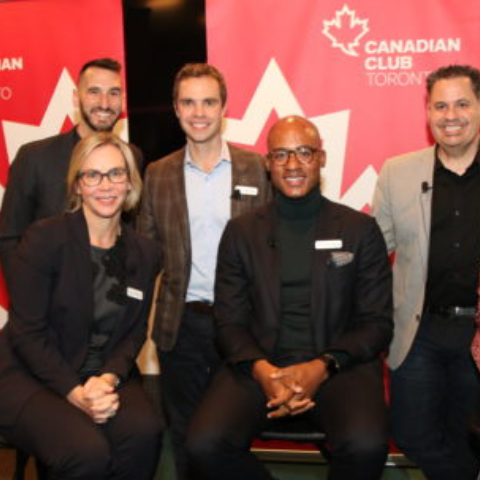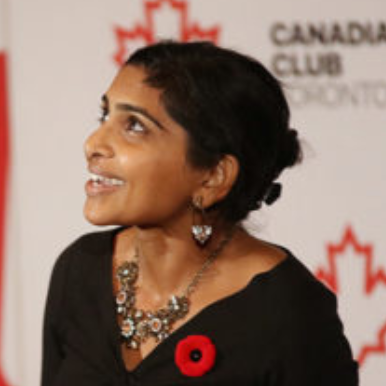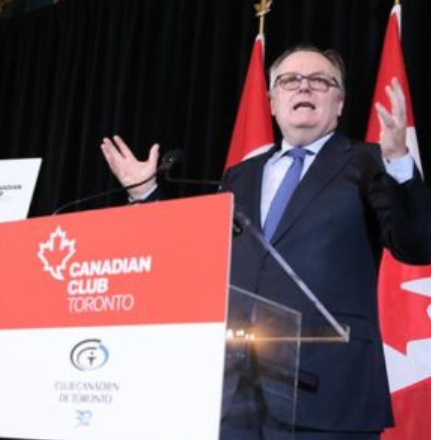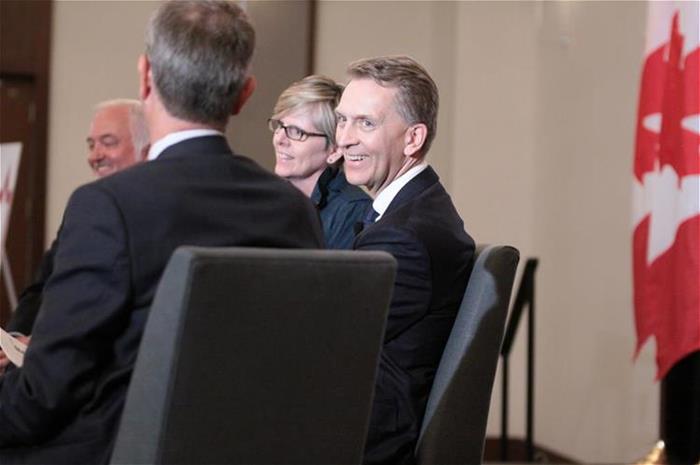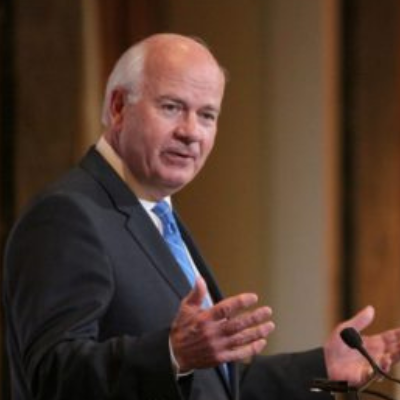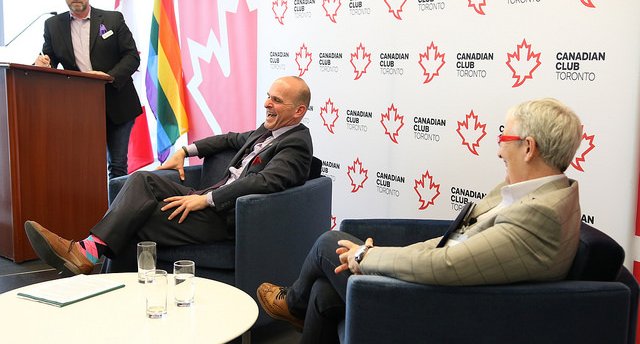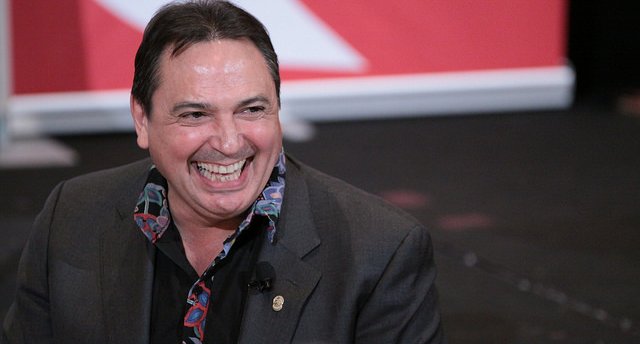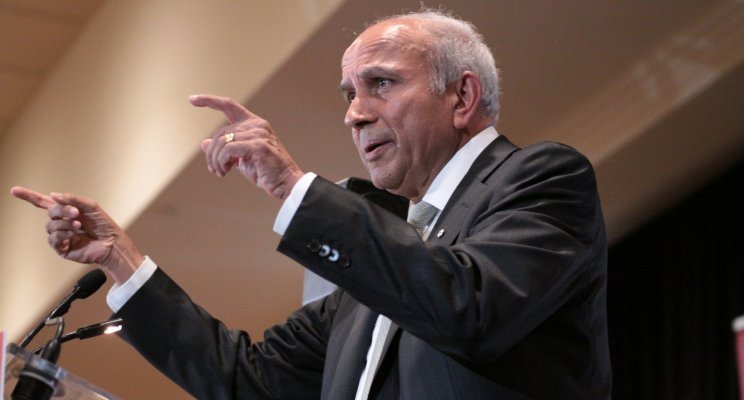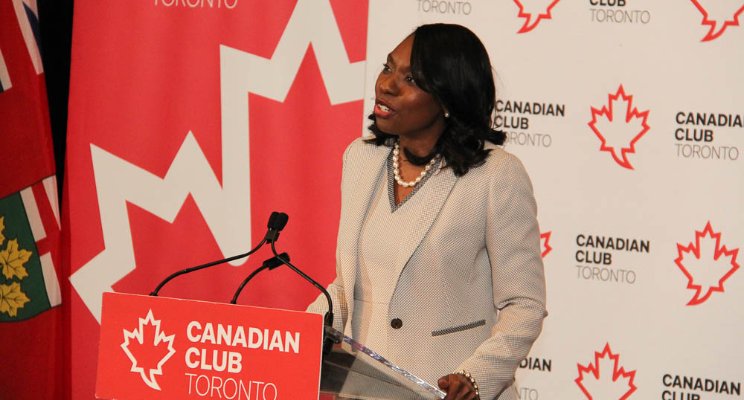You Are Here
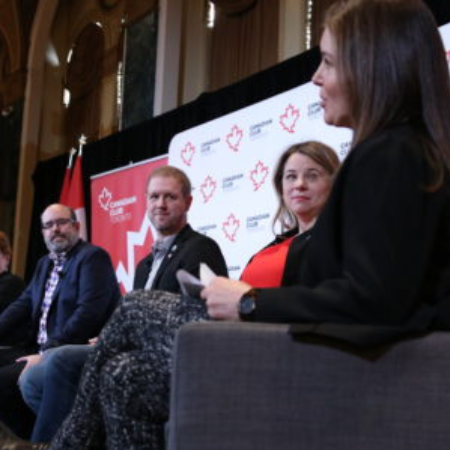
The creative team behind the Broadway sensation “Come From Away” took the Canadian Club Toronto stage on December 13, 2017 to accept the “2017 Canadians of Year” award.
Host and Canadian Club Director, Bruce Sellery, kicked off the luncheon by reminding the audience of the mission of the Club: to engage Canadians on what matters most. “And art matters. Art really, really matters.” He spoke to how wonderful it is to hear from business and political leaders from around the globe, but also how important it is to have arts and culture leaders on the stage. He then introduced the panel: Irene Sankoff & David Hein (Writers/Composers), Sue Frost & Randy Adams (Producers) and Christopher Ashley (Director).
CBC radio broadcaster Gill Deacon took over as moderator for the afternoon, and began by asking Sankoff about the roots of the show. Sankoff and Hein were working on another musical (“My Mother’s Lesbian Jewish Wiccan Wedding”), when they met lawyer/producer Michael Rubinoff, who gave them a book that would later be the basis for Come From Away. This was when they first understood the extent of what had happened in Gander, Hein said. When they heard that there would be a 10th anniversary commemoration in Newfoundland, they immediately applied for and received a grant from the Canadian Council for the Arts, and flew out to join in.
Deacon pressed further: “What was it that made you say, let’s go for it?” Sankoff answered simply: there was just something extraordinarily good here. With all of the atrocities and negativity and evil in the world, it’s important to shed light on things like this, she said.
Deacon’s question about connecting to people in Gander brought on all sorts of stories about small-town, homegrown kindness. What started as a post on a Facebook group looking for leads, lead to Sankoff and Hein staying with one of the storyteller’s fathers, and subsequently, watching his house and feeding his cats. Hein elaborated, saying that what they came to look for was a little different. While the press was crawling all over town looking for “five second sound bytes”, the couple was there to capture the entirety of each story for each drop of depth and truth. But through this process, they found lifelong friends who insisted on feeding them and submerging them in Newfoundland culture and customs.
The attention then turned to the producers, with Deacon asking Frost about her initial involvement. Frost and Adams met the couple when their produced tour of Memphis came to Toronto, and they heard some “nice Canadian writers” needed some advice. They actually met with Sankoff and Hein the morning that workshop rehearsals were slated to start for the show at Sheridan. After detailing their plans to write “Come From Away”, a show that dealt with a topic like 9/11, Frost had only 4 words: “Good luck with that.” The next thing they knew, they were watching a 45 minute presentation of it at a festival, and fell in love with it. Adams jumped in, saying that they knew it was going to require a lot of work, but they were so captivated by the people and their energy. “We have no idea what to do, but we love this and want to be a part of it.”
“Is there a Canadian-ness to it? Or is it universal?” asked Deacon. Frost was quick to respond that it was universal because “there was humanity to it.” Adams followed up, sharing that his upbringing in a small Ohio town felt reflected by what was happening on stage. Director Ashley agreed, saying that the way Sankoff and Hein were able to portray this small town feeling without being condescending resonated with him and felt truthful. He revealed that he had been in New York City when the terrorist attacks took place, and him and many others felt a lot of unresolved rage. When he began the first page of his first read, he felt that rage. But by the time he was done, he felt gratitude and a real feeling of kindness, he said.
Deacon wondered how you strike the right tone with a show that discusses such a devastating and painful topic. “How do you talk about a story like this…but you have people singing and laughing?” she asked. Hein explained that they didn’t want to write a 9/11 show; they wanted to write a “9/12” show. Being in Manhattan during the chaos of that week was heartbreaking, but also revealed the unconditional kindness of so many, he said. It reminded him that everyone was in this thing together, and he saw a lot of what he saw in New York reflected in the story of Gander. Ashley said he knew that the whole team had to go to Gander. Getting to know people gave “a great barometer for how [people] speak and how to capture their truths.” There is something more direct about it, it’s plain-spoken, he said. Adams added: “To this day, these people don’t think they did anything.”
The team was able to put on a performance of the show for the town of Gander. “What was that like?” Deacon asked. Hein described it as life changing. There was the unique opportunity to allow your cast to meet the people that inspired their characters and bring it full circle, he said. “This was an experience of reflecting an entire town’s culture back to them.”
Deacon asked about the big night: opening on Broadway. Frost explained how they had brought absolutely everyone to New York for opening night, and they all came out to bow on stage. Everyone was dancing and laughing and celebrating, and to top it all off, news broke that the show had been named Critic’s Pick by the New York Times. “We were shocked and thrilled…we knew we deserved it.” Frost laughed.
With that, it was time to move into the Q&A portion of the luncheon. The big question on everyone’s minds: “what’s next”? Hein and Sankoff revealed they are hard at work writing the film adaptation of the show, while Frost and Adams are currently in talks with bringing the show international. Ashley is opening the Jimmy Buffet infused musical “Road to Margaritaville”, as well as directing the “Come From Away” film.
“What was the first song or scene you began writing?” Deacon asked. Hein responded that “Welcome to the Rock” was definitely the beginning, but the “you are here” part came later.
An audience member asked about the group’s experience with Newfoundland music and its effect on the show, and there was no shortage of stories. Hein grew up on the sounds of the island, and knew that he wanted to infuse “Come From Away” with the distinctive music, though Sankoff wasn’t sold. After attending a kitchen party at a hockey rink in Newfoundland where “The Navigators” played, Sankoff agreed that the show must be musical. Ashley spent three weeks listening to four iconic Newfoundland tracks and learned a lot about the musicianship of that particular kind of music. He laughed that whenever they would use playoff music at the end of the show, no one would end up leaving, and would dance in their seats instead.
Canadian Club Toronto President-Elect Andrew Graham took the stage to close the event and present the Canadians of the Year Award to Sankoff and Hein. “I come to these lunches expecting to leave smarter about a topic, and I certainly got that today, but it’s rare to have such a heartwarming discussion.” Graham beamed. To the sound and sight of the entire room on their feet, Sankoff and Hein accepted the beautiful crystal award. Graham finished by reading a statement from Michael Rubinoff, who was unable to attend the event: “I want to thank everyone on stage today that brought the show to life along with the hundreds of dedicated artists and students that gave their heart and talents to this show.”
It’s no wonder “Come From Away” has enjoyed the kind of success it has seen. In years that have seen so much heartbreak and terror, and carry a feeling that nothing may ever be right again, we still find ourselves laughing. Singing. Dancing. The presence of art and music, and the willingness of people to tell their stories, allow us to escape from the world, even just for a little while. And stories like this one, where something that seemed small, turned into something huge, reminds us that nothing we do is insignificant and there’s nothing stopping us from doing something to better our tomorrows.
Happy Holidays and all the best wishes for a glorious 2018 from all of us here at Canadian Club Toronto!

